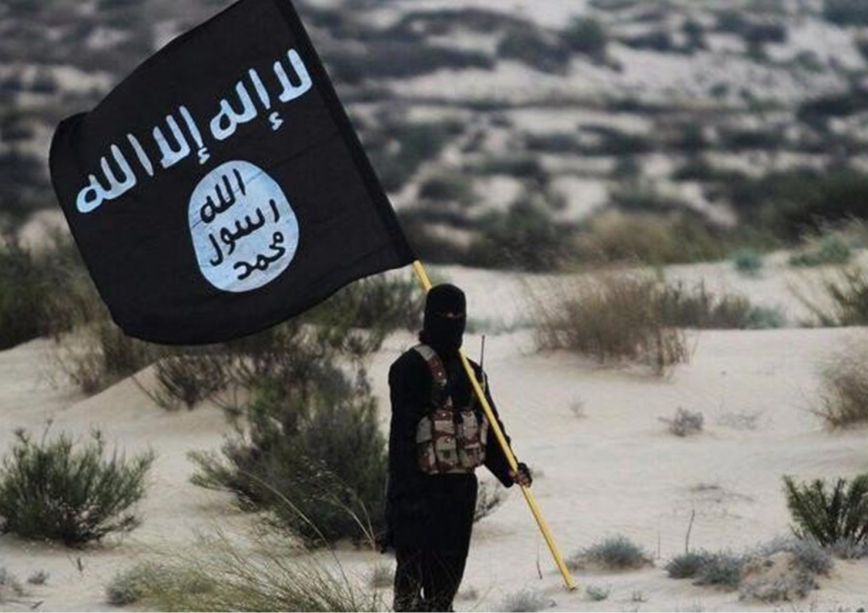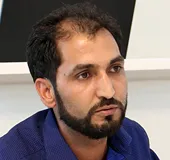
On 22 March 2024, Russia was struck by one of its deadliest terror attacks in decades. Multiple gunmen stormed Moscow's Crocus City Hall, leaving over 115 dead and more than 187 wounded. Islamic State Khorasan Province (ISKP) took responsibility for Friday's terror attack in a statement posted on social media. Following the horrific attack, Russian security agencies arrested 11 individuals, four of whom were believed to be gunmen with Tajik passports, according to Russian politician Alexander Khinshtein. Similarly, on 7 March, Russian security forces killed two Kazakh citizens linked to the ISKP who were planning a terrorist attack on a synagogue.
The Taliban's return to power in Afghanistan has coincided with a significant rise in ISKP recruitment efforts targeting individuals from Central Asia.
In January, the suicide attack by ISKP in Iran killed 92 people and wounded 102 others. A week after the attack, Iran's Ministry of Intelligence claimed that one of the ISKP suicide bombers was a Tajik national and the mastermind behind the attack was also said to be a Tajik national who had left Iran. Tajik recruits were also involved in a terrorist attack at a religious shrine in Shiraz, southern Iran, last year. Since its inception, the ISKP has exploited vulnerabilities and employed diverse recruitment strategies in Central Asia, attracting many Central Asian nationals. Subsequently, the Taliban's return to power in Afghanistan has coincided with a significant rise in ISKP recruitment efforts targeting individuals from Central Asia.
Central Asia remained a fertile ground for ISKP
In early 2015, Colonel Gulmurod Kalimov, head of the Tajik Elite Special Force and close aide of the president and his family, disappeared and joined the ranks of the Islamic State of Iraq and Syria (ISIS). Kalimov was a highly skilled sniper with extensive counterterrorism training experience, including counterterrorism courses in the United States (US). Among the 5,000 Central Asian fighters who joined ISIS in 2016, Kalimov’s defection was the most unexpected. Uzbekistan provided the most recruits, with 1,500, followed by Tajikistan, with 1,094 and Kyrgyzstan, with 863, including 188 women.
The emergence of ISKP in South Asia in the Afghanistan-Pakistan (Af-Pak) region attracted disaffected militants from al-Qaeda, the Tehrik-I-Taliban (TTP), the Taliban, and the Islamic Movement of Uzbekistan (IMU). With increased defections after the Taliban came into power, the estimated strength of ISKP was 1,500 to 4,000 fighters in 2022, which helped the terror outfit to expand its operations beyond the Afghanistan-Pakistan border region, particularly into Central Asia. This expansion coincided with a rise in ISKP recruitment within the area, especially among Uzbeks and Tajiks. As the number of Uzbek and Tajik fighters in ISKP grew, the group began carrying out attacks in neighbouring Central Asian countries. On 18 April 2022, the ISKP targeted a military base in Termez, Uzbekistan and on 7 May 2022, the group fired seven more rockets from Afghanistan's Khawaja Ghar district, aimed at unspecified military targets in Tajikistan.
With increased defections after the Taliban came into power, the estimated strength of ISKP was 1,500 to 4,000 fighters in 2022, which helped the terror outfit to expand its operations beyond the Afghanistan-Pakistan border region, particularly into Central Asia.
In the wake of the Taliban takeover of Afghanistan in August 2021, ISKP seized the opportunity to revitalise itself and establish a presence in the Central Asian Republics. Their multifaceted strategy relies heavily on online platforms, where they disseminate propaganda in local languages like Tajik and Uzbek. ISKP exploits existing regional economic and social grievances to attract potential recruits. This method was evident following the Termez attack; pro-ISKP channels on Telegram, such as the Tajik “Daily News of the Mujahedeen of Caliphate” and “The Army of Victorious Sect,” quickly posted the ISKP statement, complete with the official Al-Azaim Foundation logo. Similarly, the Uzbek-language “Tawheed Channel” released a 24-minute video titled “The Blessed Attack of Termez,” framing the attack as the beginning of a grand jihad against Central Asia Republics. ISKP's “Al-Azaim” propaganda wing, with Tajik and Uzbek branches, targets Central Asia for recruitment, fundraising, and attacks.
Tajikistan: A new hub of ISKP recruitments
Among the five Central Asian nations, Tajikistan stands out for its issues with a dysfunctional legal system, widespread corruption, and an authoritarian government. President Emomali Rahmon has been in power since 1992, and over the years, has cracked down on most opposition groups in Tajikistan including the Islamic Resistance Party of Tajikistan (IRPT). Initially, the IRPT was guaranteed positions in the government and seats in the parliament as part of a peace agreement that ended the civil war in 1997. Nevertheless, in 2015, President Rahmon declared the IRPT a terrorist organisation and made Tajikistan more vulnerable to political Islam.
With severely restricted political rights, socio-economic hardships, and a long, unguarded border with Afghanistan, Tajikistan and its young people have been especially vulnerable to ISKP ideology.
Most of its members are now either imprisoned or living in exile, making them soft targets of ISKP recruitment. Additionally, with severely restricted political rights, socio-economic hardships, and a long, unguarded border with Afghanistan, Tajikistan and its young people have been especially vulnerable to ISKP ideology. Since ISKP recruits from Tajikistan share the same culture, language, and religion as people in the wider Eurasian region, especially Türkiye and Iran, they can blend in more easily. This allows them to carry out lone-wolf attacks without being detected during security checks.
The Taliban has made progress in counterterrorism efforts, killing many Tajik and Pakistani ISKP fighters. Subsequently, ISKP has used Tajik recruits and their shared cultural vulnerabilities to carry out attacks across Greater Central Asia, Türkiye, Iran, and Europe, while maintaining its bases in Afghanistan and Pakistan. The table below shows the increased involvement of Tajik nationals in the ISKP attacks.
| Year |
Country |
Involvement of Tajik recruits of ISKP |
| April, 2020 |
Germany |
Arrest of Tajik national links with ISKP |
| October 2022 |
Iran |
Tajik nationals involved |
| February 2023 |
Türkiye |
Tajik national of alleged Transoxiana division of ISKP was arrested |
| June 2023 |
Türkiye |
Tajik national has been arrested for recruiting individuals for ISKP |
| July 2023 |
Germany Netherlands |
Nine individuals were apprehended, comprising six individuals from Tajikistan and three others from Turkmenistan and Kyrgyzstan. |
| December 2023 |
Kyrgyzstan |
Two ISKP operatives were arrested. |
| December 2023 |
Germany Austria |
Arrested two Tajik operatives with ISKP links. |
| December 2023 |
Russia |
Five Tajiks associated with ISKP were sentenced to lengthy prison terms for plotting attacks. |
| January 2024 |
Iran |
Tajik national was involved in ISKP bombing |
| January 2024 |
Türkiye |
Church was targeted, leading to the arrest of two ISKP operatives, including one from Tajikistan. |
Source: compiled by authors from different reports and newspapers.
The conflict between Israel and Hamas, particularly the ongoing strife in Gaza, has sparked calls for Jihad in the region. Leaders of Central Asian countries, excluding Turkmenistan, have condemned the attacks on civilians in Gaza. They've labelled it as a terrorist act aimed at controlling the escalating anti-Israel sentiment within the region. These leaders have also allowed peaceful protests and supported calls for boycotting Israeli products. On the flip side, groups like ISKP and al-Qaida in Central Asia are exploiting this rising anger against Israel for recruitment, fundraising, and involvement in Jihad and sacrifices. ISKP, in particular, is gaining ground in Central Asia, notably in Tajikistan. While the focus of ISKP remains in the Afghanistan-Pakistan region, the increasing recruitment in Central Asia poses a threat to the entire Eurasian region against terror attacks.
Ayjaz Wani is a Fellow at the Observer Research Foundation
The views expressed above belong to the author(s). ORF research and analyses now available on Telegram! Click here to access our curated content — blogs, longforms and interviews.




 PREV
PREV


